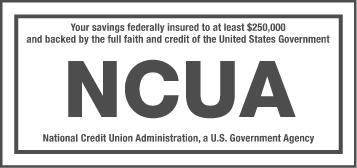
Wills and Living Trusts: The Basics
posted on
July 1, 2025
Preparing for the distribution of your estate (assets you own at the time of your death) can be a very stressful experience. After all, with so many important decisions to make, no one wants to make the wrong one. One of the most common dilemmas is whether to have a will or a living trust – or both. Knowing the fundamentals of each will help you make the right decision.
Begin with understanding probate, as it plays a significant role in estate planning. Probate is the administrative and court process that takes place after you die. It includes proving the validity of a will (if there is one), identifying, inventorying, and appraising property, paying debts and taxes, and (finally), distributing whatever assets remain.
Because probate can drag on for months or even years, much of the wealth you’ve accumulated over your lifetime can be eroded. Wills and trusts have the power to reduce probate dramatically, so that your heirs can efficiently inherit what you want them to receive.
Wills
A will is nothing more than a set of instructions that specifies who gets what of your assets. If you have property and loved ones, having a will is vital. If you die without one, state law takes over and makes distribution decisions on your behalf. In most cases everything goes to your spouse and/or children. If you have neither, your closest relatives will be the recipients, and if you have no relatives, your entire estate will be absorbed by the state. While the court may make the same decisions you would have, in many cases it does not.
One of the most compelling reasons to draw up a will is if you have children who depend on you for care. A will allows you to stipulate guardianship. Without one, the court will make this very personal choice for you.
If your estate is relatively simple, you may choose to create your own will with the help of a quality software program or guidebook. For more complex situations – or if you don’t feel comfortable writing your own will – hire an attorney or legal service to do it for you. Because this is such an essential document, you’ll want to be sure it’s done right. Consider investing in a lawyer to at least look over your finished product.
Living trusts
A living trust is a bit more complicated in concept than a will, but in essence it’s a separate legal entity that holds title or ownership to your property and assets. While you’re alive, and acting as the trustee, you hold full control over all the property held in the trust.
The primary reason to create a living trust is to avoid probate. Property held in a trust won’t have to go through probate before your loved ones receive their inheritance. Where wills are public, trusts are private, and usually harder to contest.
As with a will, you can create your own living trust by using software and guidebooks developed for “do-it-yourselfers.” However, living trusts by nature are often more involved than wills, so having a lawyer draw it up for you in the first place may be the better way to go.
Not everyone needs a living trust though. Before spending the money to create one, be aware that they can be costly to arrange, are time-consuming to put together, and require considerable ongoing maintenance (adding to the cost). Changes to a trust can take a long time, and moving certain assets such as real estate, savings, and brokerage accounts into the trust requires re-titling, which can be cumbersome.
A will plus a trust
Wills and living trusts are not mutually exclusive estate planning devices. In fact, if you have a trust, you should probably have a will to make sure all your assets will be distributed according to your wishes. Most trusts do not provide instructions for everything in your estate. A will acts as a backup for what’s not included in the trust, as it would have a clause naming a person you want to receive all leftover property. Without a will, anything you didn’t transfer into the trust will go through that long and expensive probate process. Once again, those assets will be distributed according to state law – and most likely not the way you would choose to have your property dispersed.
While estate planning certainly can be an anxiety-provoking process, knowing the fundamentals of wills and living trusts should ease some discomfort.
This article is for informational purposes only and is not intended to provide tax, legal, or accounting advice. You should consult your own tax, legal, and accounting advisors for advice. Membership required. SRP is federally insured by NCUA.
Article Credit: BALANCE













